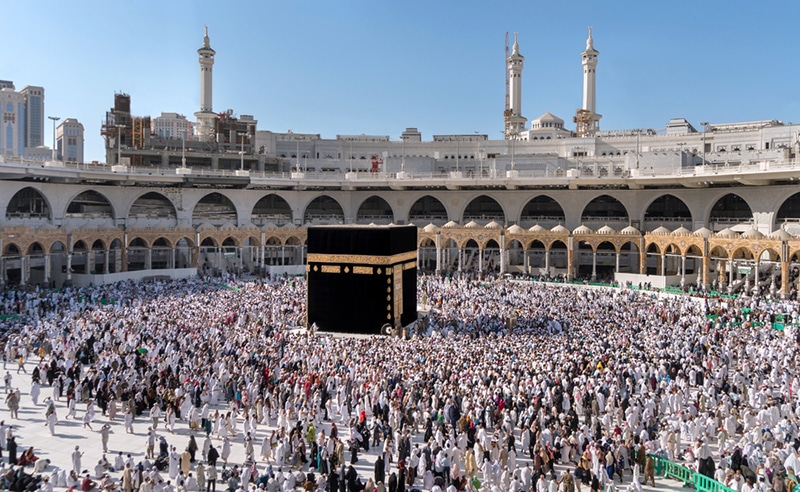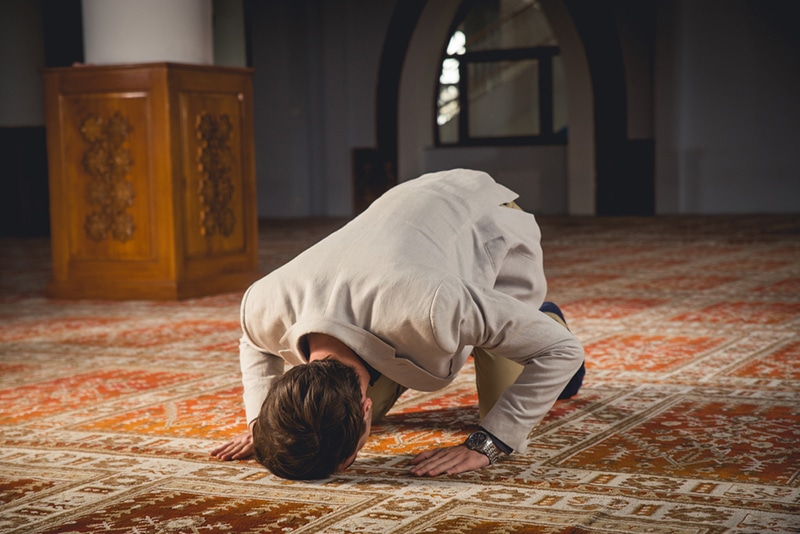One of the great things about living in Singapore is the opportunity to experience so many different religious and cultural festivals. Hari Raya Haji is just one of them. Besides enjoying the public holiday on 7th June, why not brush up on your knowledge of the festival with these five key points?
#1 Hari Raya Haji marks the end of the Hajj, the annual Muslim pilgrimage to the holy city of Mecca.
Each (normal) year, millions of worshippers flock to Islam’s most sacred mosque, Al-Masjid Al-Ḥarām. By performing the Hajj, devotees show their commitment to God. Muslims who are physically and financially able to are required to go on the pilgrimage at least once in their lives. The Hajj involves various rituals, including circling the Ka’abah (a building in the middle of the mosque) seven times. The Ka’abah, which is considered the most sacred site in Islam, is also where Muslims face for prayer wherever they are in the world. It’s not a cheap trip – some spend thousands of dollars to make the pilgrimage.
#2 Hari Raya Haji and Hari Raya Puasa are not the same thing.
Hari Raya Puasa marks the end of the fasting month of Ramadan, while Hari Raya Haji marks the end of the Hajj. Since Hari Raya Haji has a more spiritual focus, it doesn’t have the same concentration on feasting as a main part of the celebrations like Hari Raya Puasa. But you can still expect to see tables lined with traditional food in Muslim homes.

#3 Hari Raya Haji is celebrated on the 10th day of the final month of the Islamic calendar.
The dates for Islamic festivals are based on astronomical calculations hence they differ every year. The Islamic calendar (a lunar one) is shorter than the Gregorian calendar. Hence, Islamic festivals occur around 10 to 11 days earlier every year. Back in 2006, Hari Raya Haji was celebrated twice – 10 January and 31 December!
#4 Hari Raya Haji commemorates the great faith of the Prophet Ibrahim (Abraham).
The festival is also known as Eid al-Adha, “the feast of the sacrifice”. He obeyed God’s command to sacrifice his son Ismail. As Ibrahim was about to kill his son on the altar, God intervened and provided a sheep for the sacrifice instead. Since then Muslims around the world would sacrifice livestock such as sheep, lambs and goats through a ritual known as the korban. It involves facing the animal in the direction of the Ka’abah and saying a prayer. A slit on its throat ensures a quick death and its meat is distributed to worshippers and the needy.

#5 The korban in Singapore is done as a means of fundraising by local mosques.
This year, 52 mosques are participating in korban. They are offering overseas korban services for Muslims who wish to perform the ritual. The live ritual will be performed at Pertapis, Muhajirin Mosque, Omar Salmah Mosque, Tentera Diraja Mosque and
#6 The festival is also observed through fasting and prayers.
Although it isn’t compulsory, Muslims may fast fast on the Day of Arafah, the day before Hari Raya Haji. On the morning of the festival, Muslims will head to the mosque for sermons and prayers. After this, the korban is carried out, then Muslims visit family and friends to share food and gifts.
Find out more about living in Singapore!
What you need to know about Hari Raya Puasa
The expat’s guide to where to live in Singapore
Don't miss out on the latest events, news and
competitions by signing up to our newsletter!
By signing up, you'll receive our weekly newsletter and offers which you can update or unsubscribe to anytime.



